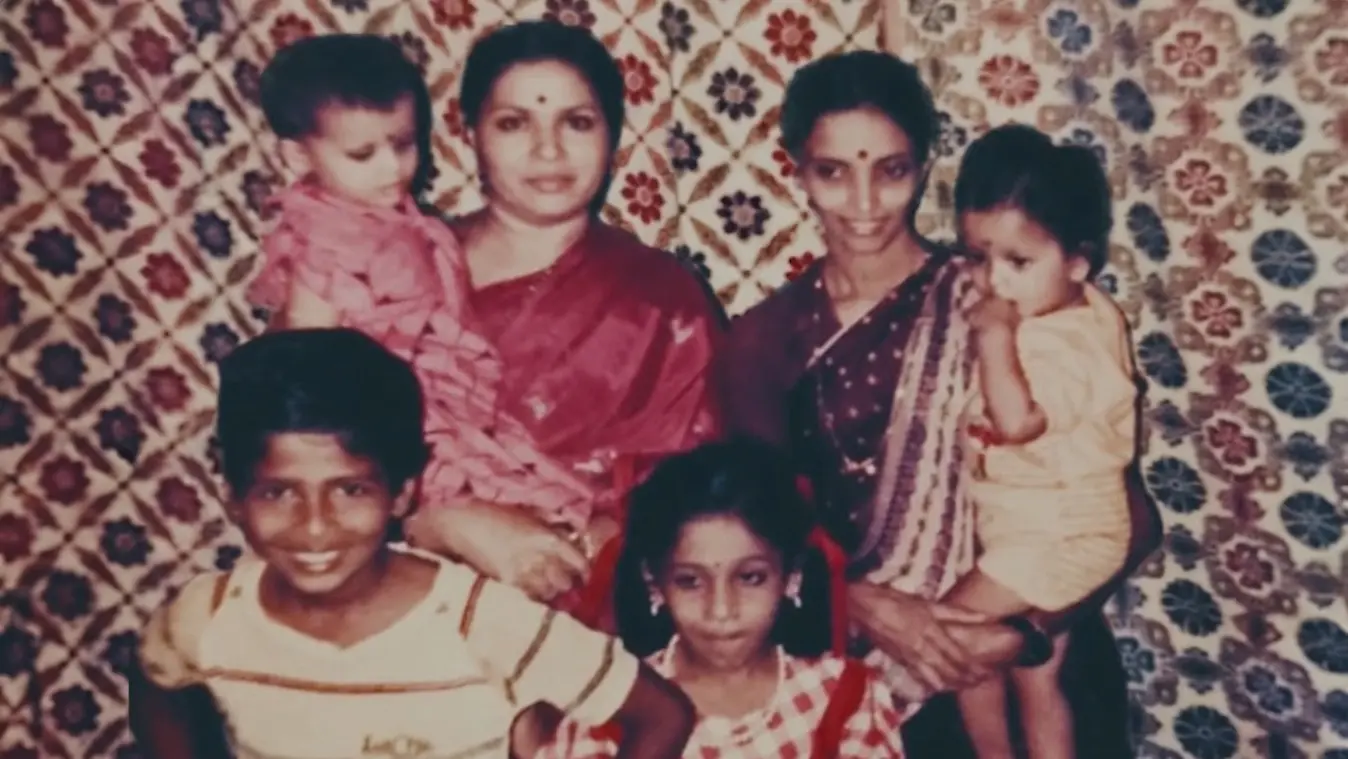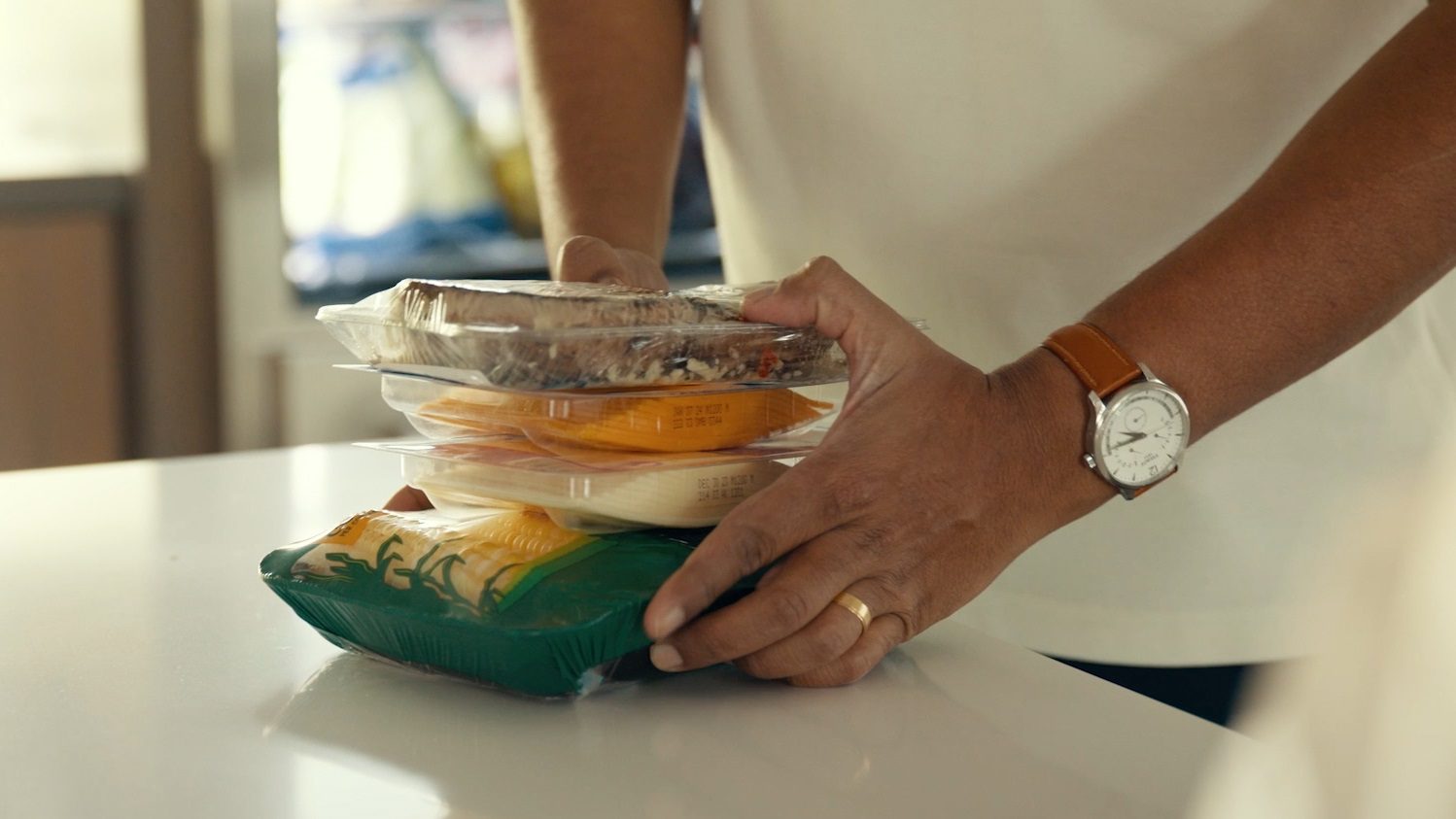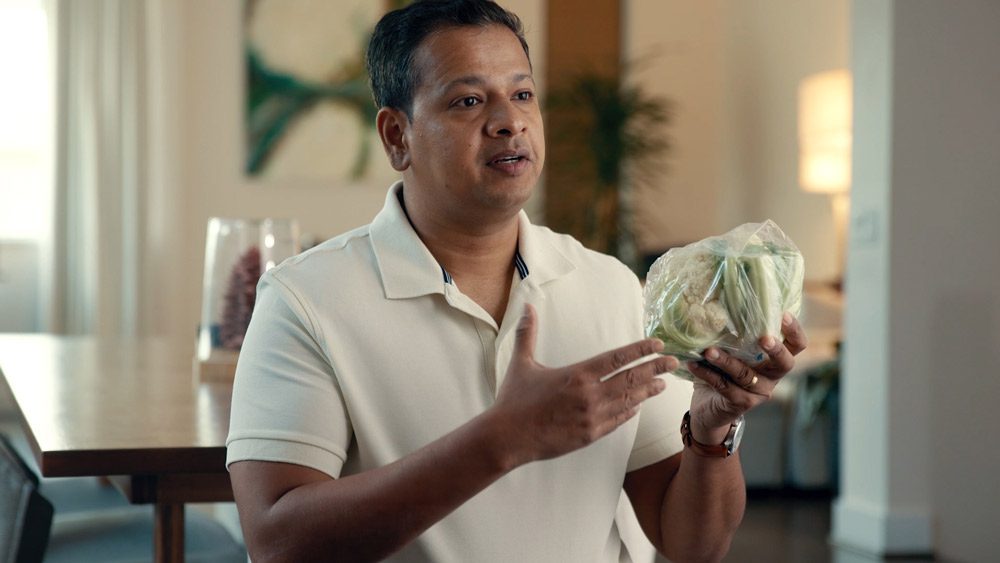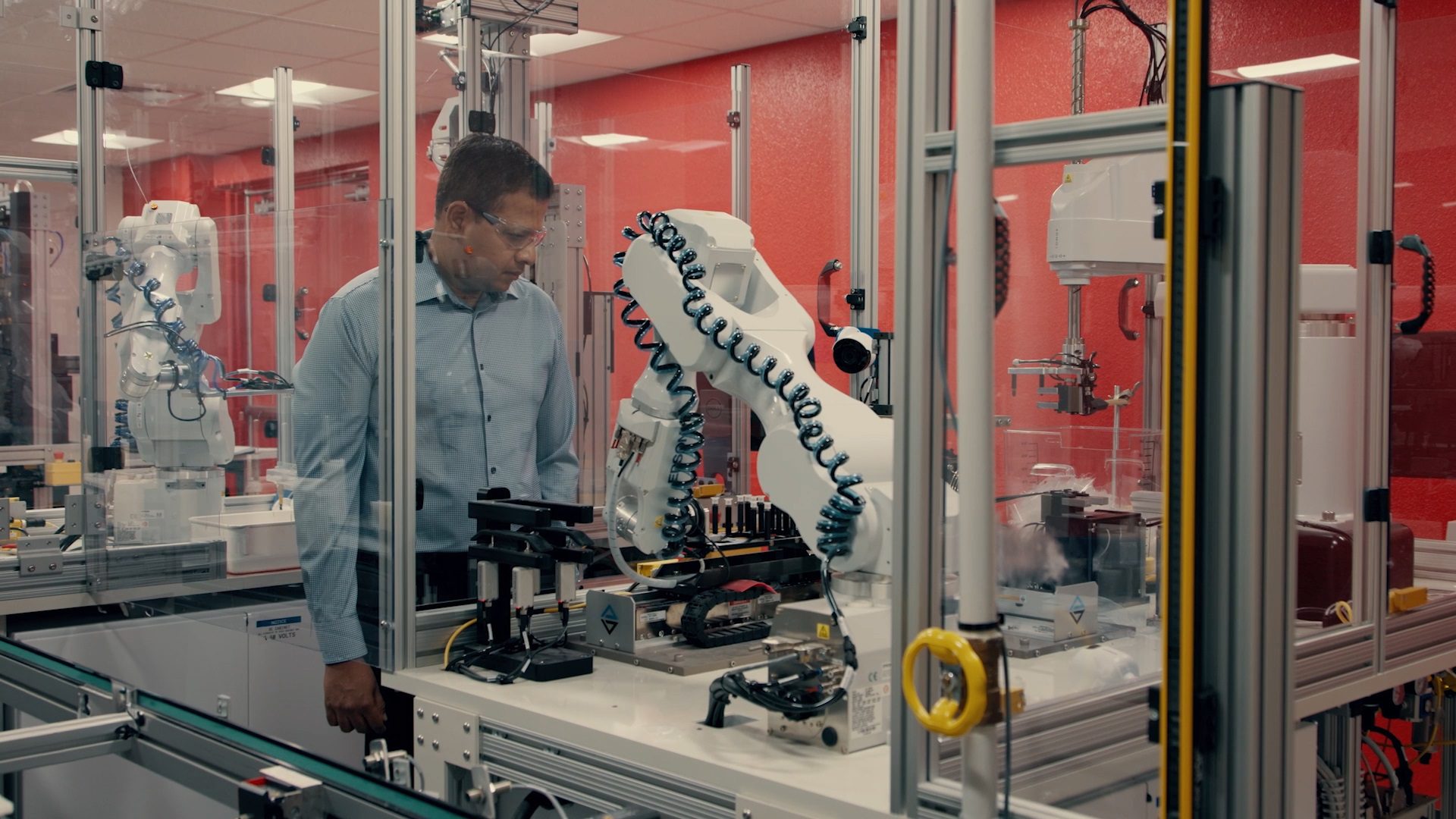Meet Mahesh. One of America’s Change Makers
Mahesh, a senior research scientist at Dow, grew up in a country with a rapidly expanding population and limited resources. He learned the importance of resourcefulness early in life. The values of minimizing waste and maximizing resources were ingrained in him at an early age.
“Growing up in India, I came from a big family. There were six of us in a small space. We had to avoid wastage. We always were taught how to use resources more efficiently. That got into the DNA of me and my siblings.”
Mahesh’s Journey to Sustainability
Mahesh’s childhood shaped his desire to make better use of our planet’s resources. When Dow presented an opportunity to work in the United States, he saw it as a chance to have an impact on a global scale.

“The decision to move to the U.S. was a big, big decision. My wife and I thought that would be a great opportunity for me to make a bigger impact than in my role in India. That was what inspired and motivated me to relocate to the U.S.”
He now works for one of the world’s largest companies, focusing on enhancing the efficiency of everyday materials and products. Including packaging that helps protect our food and reduce food waste.
“I’m glad I made that decision. Because that enabled me to get into this role in plastic circularity here in the U.S. and make a difference to society by researching ways to minimize waste and reduce greenhouse gas emissions and improve efficiencies.”
Improving Sustainability through Science
Mahesh specializes in the complex science that goes into improving sustainability. He digs into the environmental impacts of various packaging types, focused on optimizing efficiency at every stage of their lifecycle. Through lifecycle assessments, he’s able to identify ways to reduce resource consumption and carbon emissions, which contributes to sustainability.

“I work on lifecycle assessments. When we study the environmental impacts of different packaging types, we typically do that from cradle to grave. That means we start by looking at resources used to make the packaging, then examine the packaging itself, and then its consumer use and finally its end of life.”
“By looking at a product using lifecycle assessment, we can understand where the opportunities are to make an impact in reducing overall resources. We can understand where the hotspots are in the production process of a product that can be improved upon. We can make that product more sustainable, less carbon intensive.”
Plastic Packaging’s Role in Reducing Food Waste
Mahesh’s work helps enhance the efficiency of plastic packaging and its ability to protect our food supply. Food that requires valuable resources to grow, harvest and transport.
“Food waste is a massive problem. We have found that just a small amount of plastic packaging in terms of total weight can extend the shelf life of a product by a significant amount, which reduces food waste.”
Lightweight plastic packaging can play a significant role in reducing food waste.

“If a cauliflower is packaged in plastic packaging, that increases shelf life. Now, if it’s not there and the cauliflower rots, then all the resources — the nutrients, the water, the transportation energy that has gone into bringing this cauliflower all the way from the farm to the retail shop and home – will all be wasted. And plastic packaging helps prevents that.”
Plastic Circularity and Advanced Recycling
Mahesh is part of a team at Dow that focuses on developing technologies that help reuse plastic, so it doesn’t end up in a landfill.
“I work on the plastic circularity team. A lot of the exciting technologies that we’re working on help the movement toward a circular economy in which plastic is reused instead of discarded.”
That includes advanced recycling technologies that allow us to dramatically increase the types and quantities of plastic that can be recycled (also called chemical recycling). Just like his packaging lifecycle assessments, Mahesh is looking for ways to make advanced recycling technologies as efficient as possible.

“I do a lot of technology evaluation of advanced recycling processes. We look at lifecycle assessments of these circular technologies that are going to replace linear technologies and make sure that we are making transparent comparisons between the two, and to understand the areas that need to be improved upon.”
A World with Less Waste
That research helps improve the efficiency of plastic. And recycling. And it helps society waste less.

“We’re making sure that the resources that are in the waste plastic are brought back into society and are not wasted to landfill or incineration. That’s an inspiration that I can tie back to my growing up in India.”
We’re glad you’re here making an impact, Mahesh.
We wish Mahesh and his colleagues continued success.

